
Balancing Chemical Equations — Overview & Examples Expii
The chemical equation described in section 4.1 is balanced, meaning that equal numbers of atoms for each element involved in the reaction are represented on the reactant and product sides. This is a requirement the equation must satisfy to be consistent with the law of conservation of matter. It may be confirmed by simply summing the numbers of.

Balancing Chemical Equations UPDATED Chemistry Tutorial YouTube
A balanced equation is an equation for a chemical reaction in which the number of atoms for each element in the reaction and the total charge are the same for both the reactants and the.

How to Balance Chemical Equations 10 Steps (with Pictures)
Balance a chemical equation when given the unbalanced equation. Explain the role of the Law of Conservation of Mass in a chemical reaction. Even though chemical compounds are broken up and new compounds are formed during a chemical reaction, atoms in the reactants do not disappear, nor do new atoms appear to form the products.
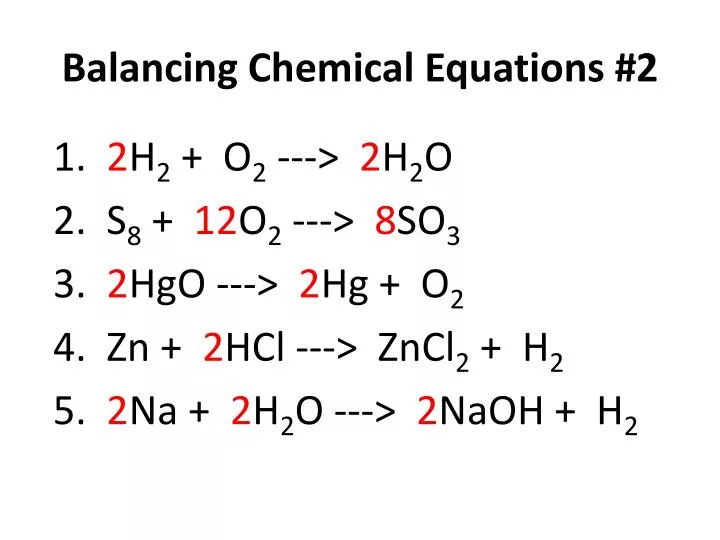
Ideal Balanced Chemical Equation Hcl And Naoh Equations Worksheet With Answers
The total number of atoms in a compound is the subscript multiplied by the coefficient (e.g., 4H 2 O contains 4 x 2 = 8 atoms of hydrogen and 1 x 4 = 4 atoms of oxygen). Balanced Chemical Equations 6 CO 2 + 6 H 2 O → C 6 H 12 O 6 + 6 O 2 (balanced equation for photosynthesis) 2 AgI + Na 2 S → Ag 2 S + 2 NaI Ba 3 N 2 + 6 H 2 O → 3 Ba (OH) 2 + 2 NH 3

50 Examples Of Balanced Chemical Equations With Answers Pdf Tessshebaylo
Balancing Chemical Equations in Five Easy StepsBalancing chemical equations is a core skill in chemistry. In this video you'll learn the basics for balancin.
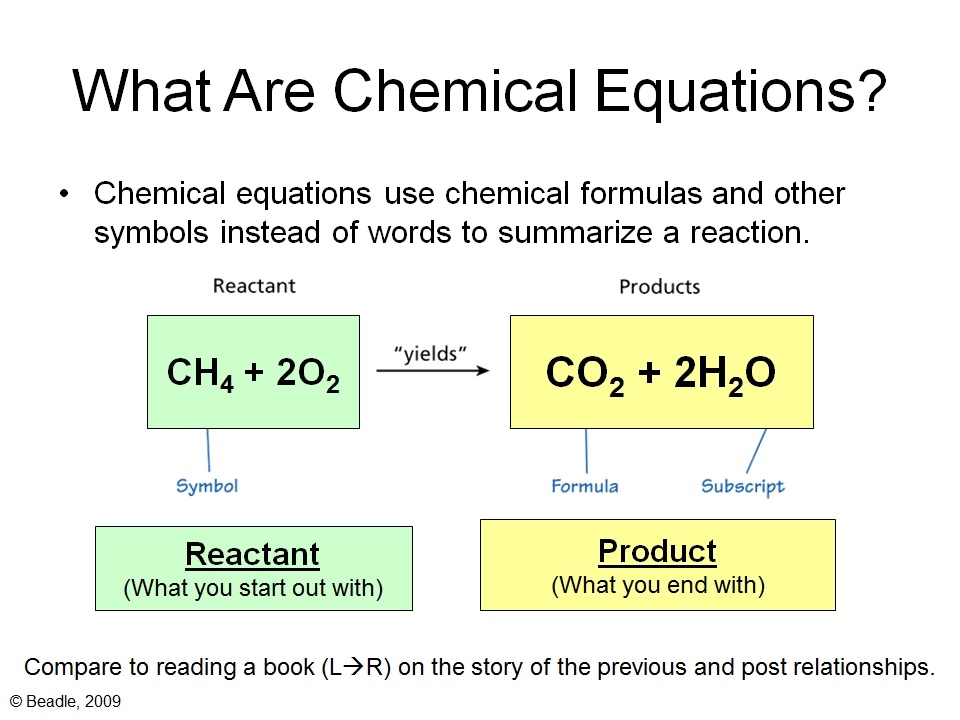
Chemical Writing & Balanced Equations Upper sec Science
Balance chemical formulas by placing coefficients in front of them. Do not add subscripts, because this will change the formulas. Indicate the states of matter of the reactants and products. Use (g) for gaseous substances. Use (s) for solids. Use (l) for liquids. Use (aq) for species in solution in water.
HelpWork balancing chemistry equations
Write Down Number of Atoms. The next step for balancing the chemical equation is to determine how many atoms of each element are present on each side of the arrow: Fe + O 2 → Fe 2 O 3. To do this, keep in mind a subscript indicates the number of atoms. For example, O 2 has 2 atoms of oxygen.

50 balanced chemical equations Brainly.in
Here are examples of balanced equations you can review or use for homework. Note that if you have "1" of something, it does not get a coefficient or subscript. The word equations for a few of these reactions have been provided, though most likely you'll be asked to provide only the standard chemical equations .
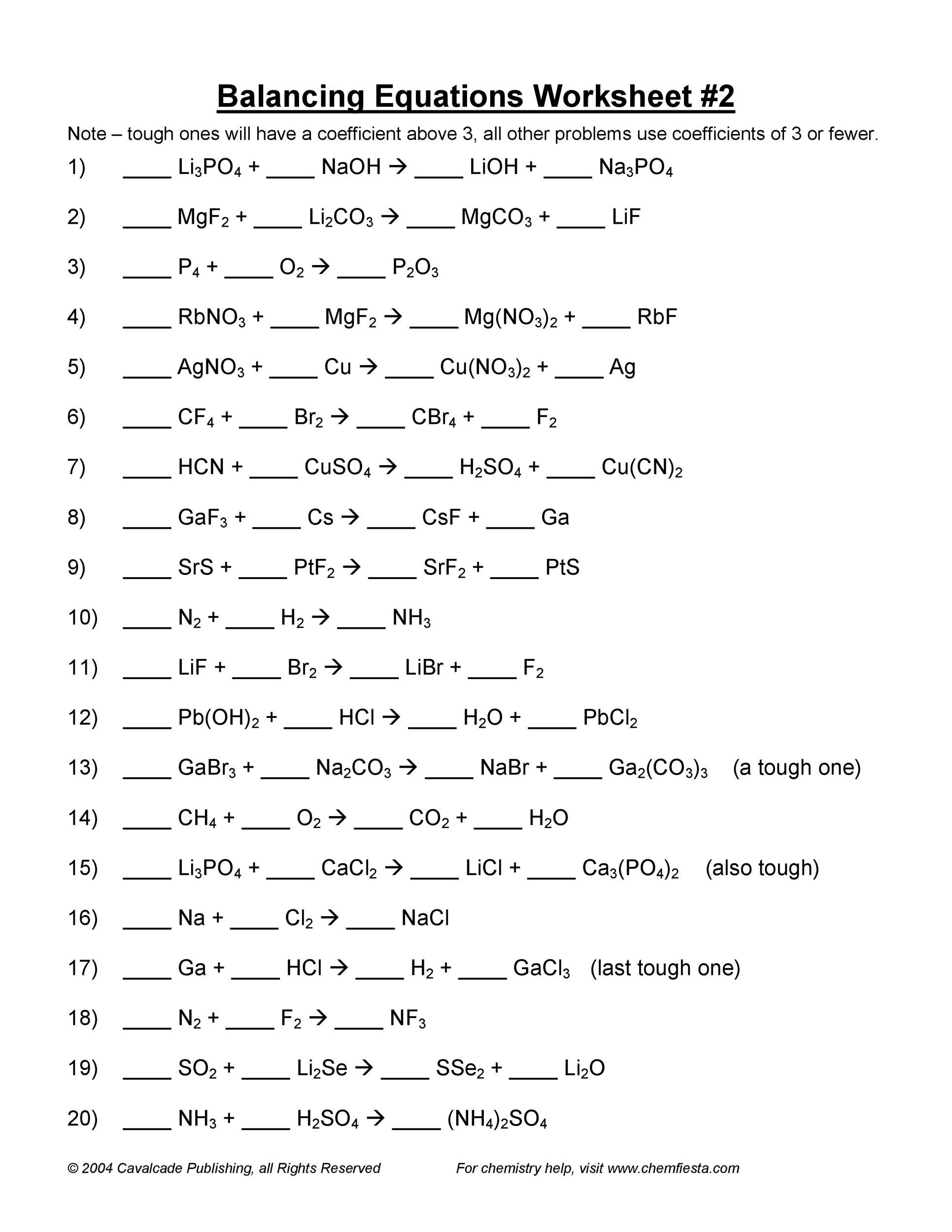
49 Balancing Chemical Equations Worksheets [with Answers]
Here are 50 simple balanced chemical equations. 2Fe2O3+3C--->4Fe+3CO2 2)H2SO4+CaCO3--->CaSO4+H2CO3 3) 2H2+02--->2H20. What is the balanced chemical equation for magnesium hydroxide and hydrochloric acid? Medium. View solution > When balancing a chemical equation, why can you change coefficients, but not subscripts?.
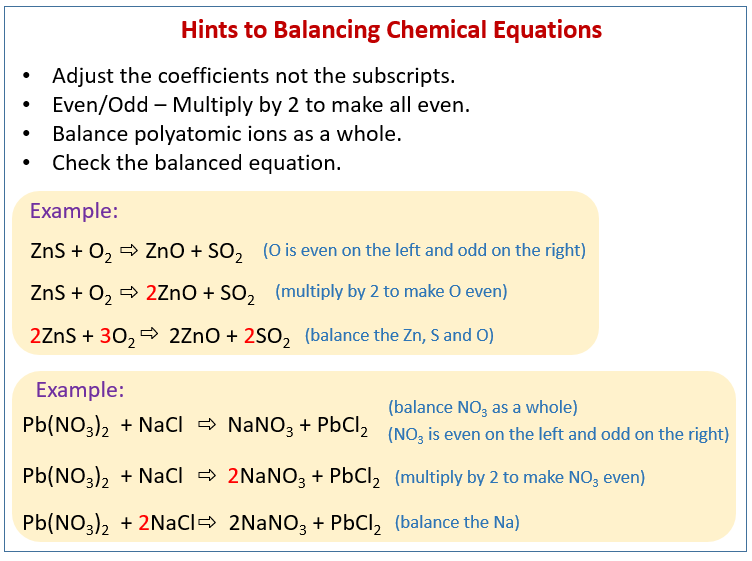
How to balance chemical equations (solutions, examples, videos)
The chemical formula of propane is C 3 H 8. It burns with oxygen (O 2) to form carbon dioxide (CO 2) and water (H 2 O) The unbalanced chemical equation can be written as C3H8 + O2 → CO2 + H2O Step 2 The total number of atoms of each element on the reactant side and the product side must be compared.

50 balanced chemical equations? Brainly.in
CHEM 120: Fundamentals of Chemistry 4: Chemical Quantities and Reactions
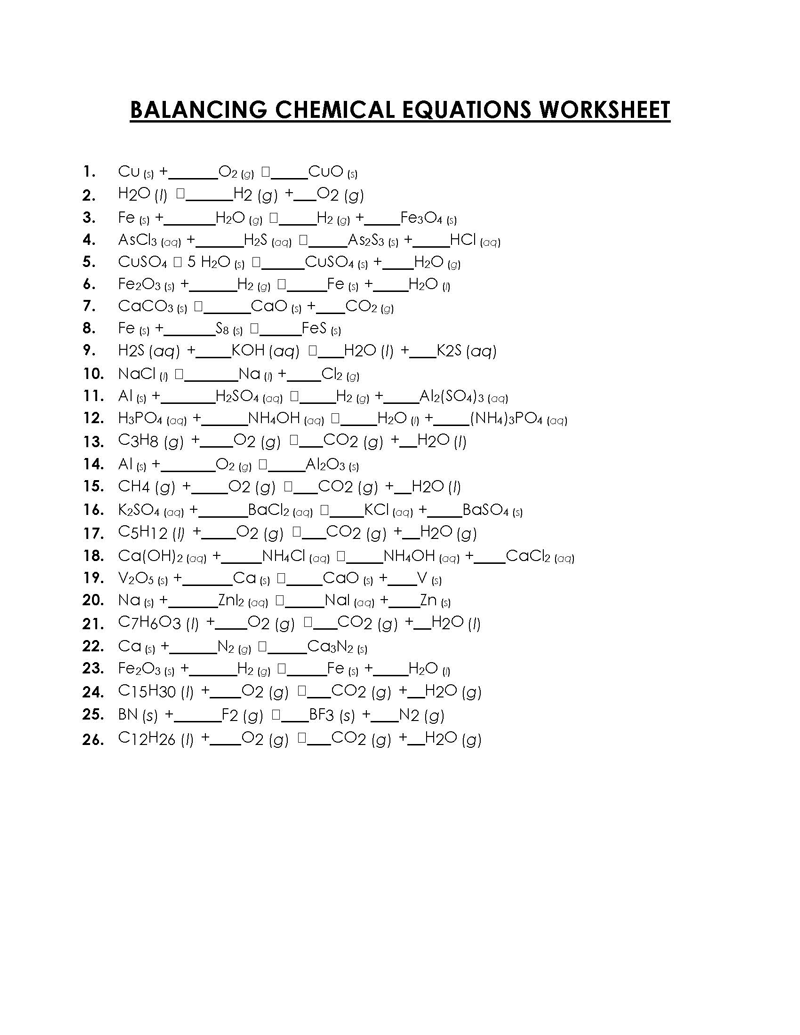
45 Free Balancing Chemical Equations Worksheets (PDF)
General Chemistry Map: Chemistry - The Central Science (Brown et al.) 3: Stoichiometry- Chemical Formulas and Equations 3.1: Chemical Equations

How to Balance Chemical Equations 11 Steps (with Pictures)
Chemistry Examples. Step-by-Step Examples. Chemistry. Chemical Equations and Reactions. Balance. Li + H2O → LiOH + H2 L i + H 2 O → L i O H + H 2. The law of conservation of mass states that matter cannot be created nor destroyed. There are no more or less atoms at the end of a chemical reaction than there were at the beginning.

How to balance chemical equations
Chemical Equations and the Law of Conservation of Matter. In the previous section, the reaction between hydrogen gas and oxygen gas to produce water in the gaseous phase was shown as a chemical equation:. H 2 (g) + O 2 (g) → H 2 O (g) . At the molecular level, the reaction would look something like this: Notice that there are two oxygen atoms on the left hand side of the equation and only.
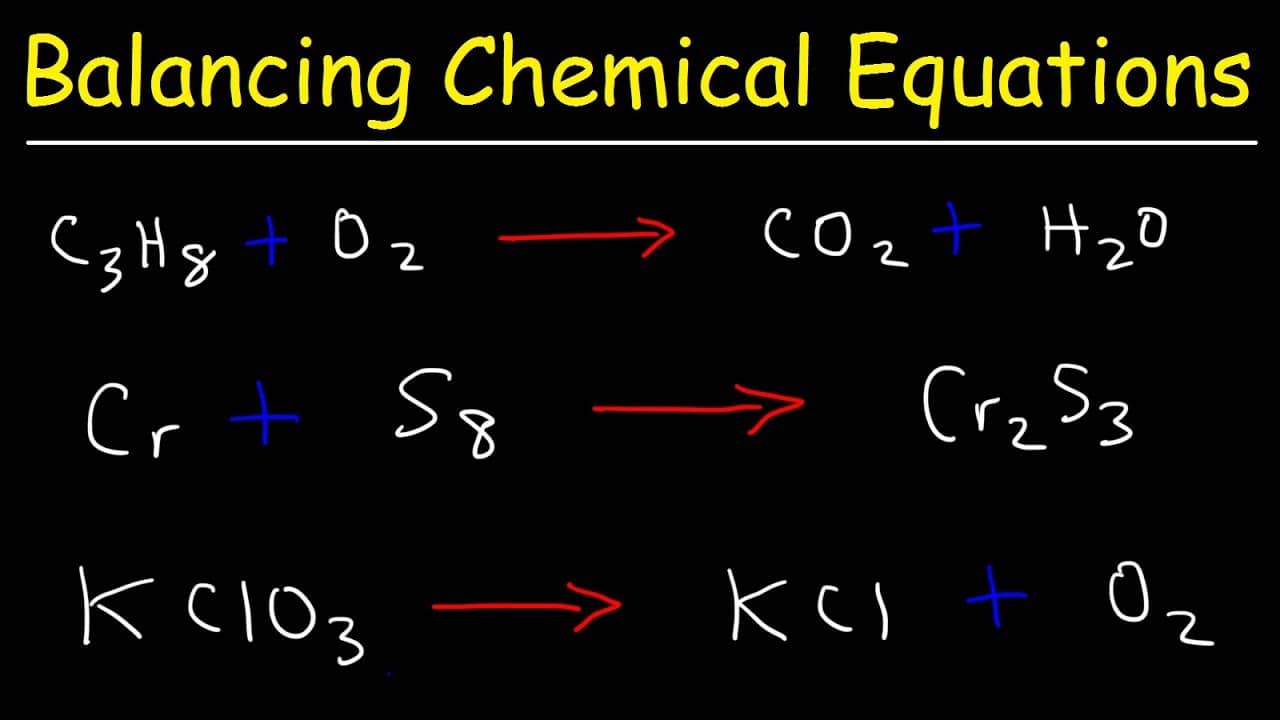
How to Balance Chemical Equations? Best Examples Get Education Bee
Here are 50 simple balanced chemical equations. 2Fe2O3+3C--->4Fe+3CO2 2)H2SO4+CaCO3--->CaSO4+H2CO3 3) 2H2+02--->2H20 4) CH3COOH+C2H5OH ---> CH3COOC2H5+H2O 5) 1 AgNO3 + 1 LiOH --> 1 AgOH + 1 LiNO3 6) CH4+2O2--->CO2+2H2O. 7) Sn+2H2SO4-->SnSO4+2H2O+SO2 8) CuO+H2SO4--->CuSO4+H2 9) Mg3N2 + 3H2O ---> 3MgO + 2NH3 10) N2 + O2 ---> 2 NO

How to Balance Chemical Equations Step by Step Explanation with Examples & Practice Problems
Example of Balancing a Chemical Equation Let's illustrate this with an example by balancing this chemical equation: P 4 O 10 + H 2 O → H 3 PO 4 First, let's look at the element that appears least often. Notice that oxygen occurs twice on the left-hand side, so that is not a good element to start out with.